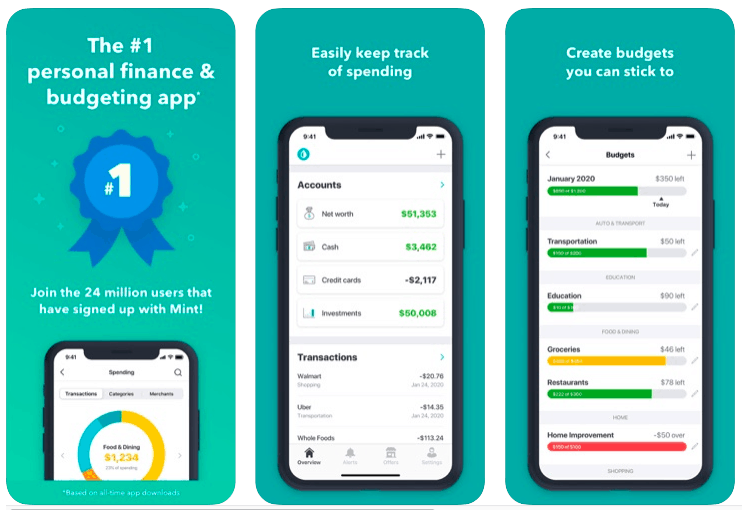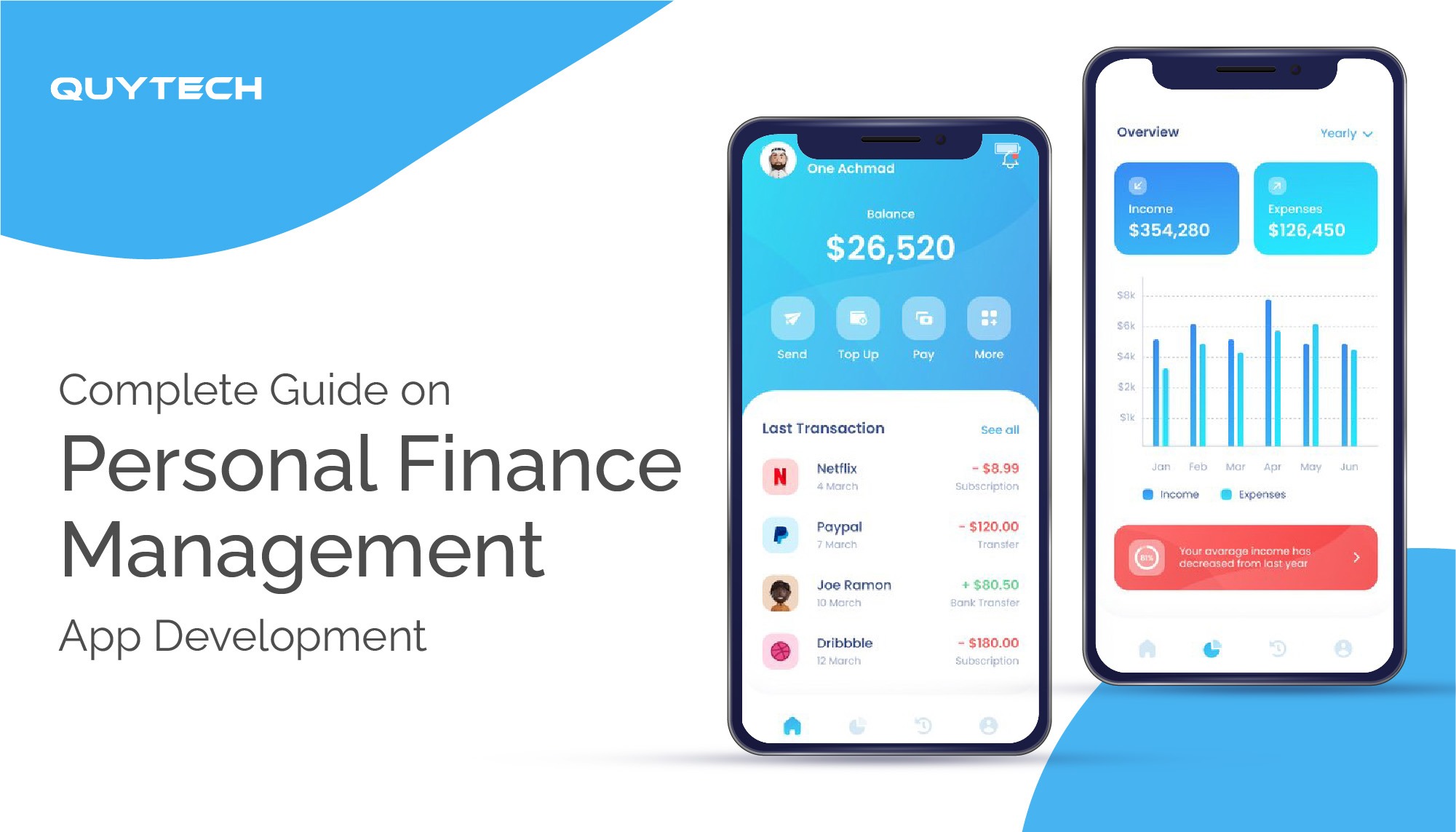Finance management apps have revolutionized the way we manage our finances, providing us with unparalleled control, visibility, and convenience. From budgeting and expense tracking to investment tracking and financial planning, these apps empower us to take charge of our financial well-being and achieve our financial goals.
In this comprehensive guide, we will delve into the essential features, benefits, and considerations for choosing a finance management app. We will also explore best practices for using these apps effectively and discuss emerging trends and innovations shaping the industry.
Features and Functions of Finance Management Apps

Finance management apps provide a comprehensive suite of features and functionalities designed to help individuals and businesses manage their finances effectively. These apps typically offer a range of capabilities, including budgeting, expense tracking, investment tracking, and financial planning.
Budgeting:Budgeting is a crucial aspect of financial management, and finance management apps offer robust budgeting tools to help users create and track their budgets. These tools allow users to set financial goals, allocate funds to different categories, and monitor their spending against their budget.
Some popular apps that excel in budgeting include Mint, YNAB (You Need a Budget), and EveryDollar.
Expense Tracking:Expense tracking is essential for understanding where your money is going. Finance management apps provide expense tracking features that allow users to record and categorize their expenses. This information can be used to identify areas where spending can be reduced or optimized.
Some apps that offer excellent expense tracking capabilities include Expensify, Zoho Expense, and QuickBooks Self-Employed.
Investment Tracking:For individuals who invest in stocks, bonds, or other financial instruments, finance management apps offer investment tracking features. These features allow users to track the performance of their investments, monitor market trends, and make informed investment decisions. Some apps that specialize in investment tracking include Robinhood, Acorns, and Stash.
Financial Planning:Financial planning involves setting long-term financial goals and developing strategies to achieve them. Finance management apps provide financial planning tools that help users create financial plans, track their progress, and make adjustments as needed. Some apps that offer comprehensive financial planning capabilities include Personal Capital, Moneydance, and Quicken.
Benefits of Using Finance Management Apps

Finance management apps offer a plethora of advantages, empowering individuals and businesses to take control of their financial well-being. These apps provide:
Improved Financial Visibility
- Comprehensive dashboards that display real-time financial data, including account balances, transactions, and investments.
- Categorization and tagging features that help users track expenses and income by category, enabling better understanding of spending patterns.
Enhanced Budgeting Control
- Budgeting tools that allow users to create and track budgets, ensuring expenses stay within predetermined limits.
- Notifications and alerts that warn users when they are approaching or exceeding budget thresholds.
Increased Savings
- Automated savings features that transfer funds from checking to savings accounts on a regular basis.
- Goal-setting functionality that helps users save for specific financial goals, such as a down payment on a house or retirement.
Reduced Stress
- By simplifying financial management, these apps reduce the stress associated with tracking finances manually.
- They provide peace of mind by ensuring that users have a clear understanding of their financial situation.
Case Study: Success Story
A recent study conducted by [insert credible source] found that individuals who used a finance management app for one year experienced a significant increase in their savings (by an average of 15%) and a decrease in their financial stress (by an average of 20%).
Considerations for Choosing a Finance Management App
When selecting a finance management app, consider the following key factors:
Compatibility
Ensure the app is compatible with your devices and operating systems.
Security
Verify the app’s security measures to protect your financial data.
User Interface
Choose an app with an intuitive and user-friendly interface that meets your needs.
Cost
Consider the app’s pricing model and any additional fees.
| App | Compatibility | Security | User Interface | Cost |
|---|---|---|---|---|
| Mint | iOS, Android | 256-bit encryption | Intuitive, customizable | Free |
| YNAB (You Need a Budget) | iOS, Android, Desktop | Bank-level encryption | Goal-oriented, envelope budgeting | $99/year |
| PocketGuard | iOS, Android | AES-256 encryption | Simple, visual interface | Free, with premium features available |
| Personal Capital | iOS, Android, Desktop | Multi-factor authentication | Comprehensive, investment-focused | Free, with premium features available |
Best Practices for Using Finance Management Apps
Finance management apps offer a convenient and efficient way to manage your personal finances. To get the most out of these apps, it’s essential to follow some best practices.
Start by setting up a budget that aligns with your financial goals. Track your expenses regularly to identify areas where you can save money. Review your financial data periodically to identify trends and make informed decisions.
Setting Up a Budget
- Determine your income and expenses.
- Categorize your expenses into essential and non-essential.
- Allocate funds to each category based on your priorities.
- Review your budget regularly and make adjustments as needed.
Tracking Expenses, Finance management apps
- Use the app’s built-in expense tracker to record all your purchases.
- Categorize each expense to track your spending patterns.
- Set up alerts for large or unusual expenses.
- Review your expense reports regularly to identify areas where you can cut back.
Reviewing Financial Data
- Generate reports to visualize your financial data.
- Analyze trends in your income, expenses, and savings.
- Identify areas where you can improve your financial habits.
- Use the app’s insights and recommendations to make informed decisions.
Trends and Innovations in Finance Management Apps

The finance management app industry is constantly evolving, with new trends and innovations emerging all the time. Some of the most notable trends include the use of artificial intelligence (AI), machine learning (ML), and personalized financial advice.
AI and ML can be used to automate many of the tasks that are typically associated with finance management, such as budgeting, tracking expenses, and investing. This can free up users to focus on other things, such as growing their businesses or spending time with their families.
Personalized financial advice can help users to make better financial decisions by providing them with tailored recommendations based on their individual needs and goals. This can be a valuable service for users who are looking to improve their financial health.
Examples of Apps Leading the Way
There are a number of finance management apps that are leading the way in these areas. Some of the most popular apps include:
- Mint: Mint is a free app that offers a wide range of features, including budgeting, expense tracking, and investment tracking.
- YNAB (You Need a Budget): YNAB is a paid app that focuses on budgeting. It uses a unique envelope system to help users stay on track with their spending.
- Personal Capital: Personal Capital is a free app that offers a comprehensive suite of financial planning tools, including budgeting, investment tracking, and retirement planning.
Ultimate Conclusion
Whether you’re a seasoned investor or just starting your financial journey, finance management apps can help you make informed decisions, optimize your savings, and achieve financial freedom. Embrace the power of these apps and unlock a world of financial possibilities.
FAQ Explained
What are the key features of finance management apps?
Essential features include budgeting, expense tracking, investment tracking, financial planning, and reporting.
How can finance management apps benefit me?
Benefits include improved financial visibility, better budgeting control, increased savings, reduced stress, and informed decision-making.
What factors should I consider when choosing a finance management app?
Consider compatibility with your devices and software, security measures, user interface, cost, and customer support.
